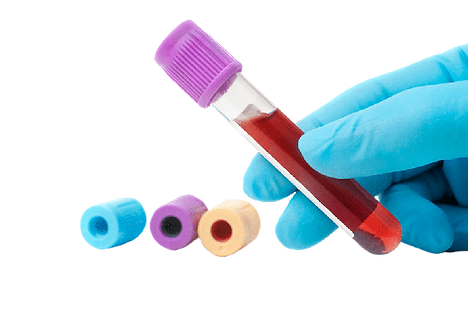What is PID?
Primary immunodeficiency is a group of inherited disorders that affect the body's immune system, making it unable to fight off infections and diseases effectively. These conditions are caused by genetic defects that affect the development and function of immune cells, including B-cells, T-cells, and natural killer (NK) cells. People with primary immunodeficiency are more susceptible to infections, and they may experience recurrent, severe, or unusual infections that can be difficult to treat.
The immune system is a complex network of cells, tissues, and organs that work together to protect the body against harmful pathogens such as viruses, bacteria, and fungi. When the immune system is functioning correctly, it can recognize and destroy these pathogens before they cause harm to the body. However, in people with primary immunodeficiency, the immune system is compromised, which makes it difficult for the body to fight off infections and diseases.

SYMPTOMS

-
One of the most common signs of primary immunodeficiency is having infections that are more frequent, longer lasting or harder to treat than are the infections of someone with a typical immune system.
-
You may also get infections that a person with a healthy immune system likely wouldn't get (opportunistic infections).
-
Signs and symptoms differ depending on the type of primary immunodeficiency disorder, and they vary from person to person.
Signs and symptoms of primary immunodeficiency can include:
-
Frequent and recurrent pneumonia, bronchitis, sinus infections, ear infections, meningitis or skin infections Inflammation and infection of internal organs Blood disorders, such as low platelet count or anemia Digestive problems, such as cramping, loss of appetite, nausea and diarrhoea.
-
Delayed growth and development Autoimmune disorders, such as lupus, rheumatoid arthritis or type 1 diabetes
DIAGNOSIS
Your doctor diagnoses PIDD based upon your personal and family medical history, a physical examination, and laboratory testing.
To confirm your diagnosis, your doctor may order tests that include:
-
Blood tests to identify specific immune system abnormalities.
-
Genetic tests to find mutations on genes.
-
Flow cytometry, which uses a special laser to examine samples of immune system cells.

TREATMENT
The treatment for primary immunodeficiency (PID) depends on the specific type and severity of the condition. Here are some common treatment approaches:
-
Antibiotics to prevent certain infections Treatments that help your immune system work better (including immunoglobulin replacement therapy
-
Bone Marrow and Stem cell transplant to provide your body with working immune cells from another person (donor)

